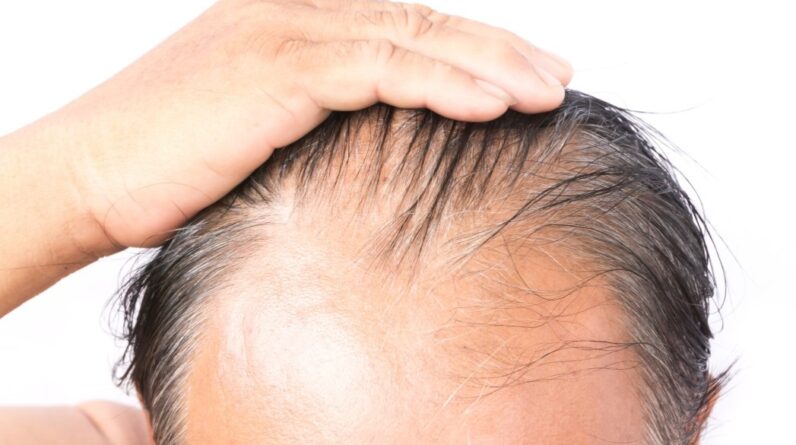
Hair loss, also known as alopecia, is a common condition that can affect people of all ages and genders. There are various causes of hair loss, and it can manifest in different forms. Here are some key points about hair loss:
Types of Hair Loss:
- Androgenetic Alopecia (Male and Female Pattern Baldness): This is the most common cause of hair loss and is hereditary. It affects both men and women, but patterns of baldness differ.
- Alopecia Areata: This is an autoimmune condition where the immune system mistakenly attacks hair follicles, causing hair loss in patches.
- Telogen Effluvium: This type of hair loss is usually temporary and occurs when a large number of hair follicles prematurely enter the resting phase (telogen) and subsequently shed.
- Traction Alopecia: Caused by excessive pulling or tension on the hair, often due to certain hairstyles.
- Scarring Alopecia: Hair loss occurs due to inflammation that damages and scars the hair follicles.
Causes of Hair Loss:
- Genetics: Family history plays a significant role in determining the likelihood of hair loss.
- Hormonal Changes: Hormonal fluctuations due to pregnancy, childbirth, menopause, or thyroid problems can contribute to hair loss.
- Medical Conditions: Conditions such as lupus, diabetes, and certain fungal infections can lead to hair loss.
- Medications: Some drugs, such as those used in chemotherapy, blood thinners, and antidepressants, can cause hair loss as a side effect.
- Poor Nutrition: Lack of essential nutrients, such as iron, zinc, and vitamin D, can contribute to hair loss.
- Stress: Emotional or physical stress can lead to hair loss, often through a condition called telogen effluvium.
- Hairstyles and Treatments: Excessive use of harsh hairstyles, chemical treatments, or hot styling tools can damage hair and lead to breakage and loss.
Treatment and Management:
- Topical Medications: Minoxidil is a commonly used over-the-counter topical medication for promoting hair growth.
- Prescription Medications: Finasteride is a prescription medication for treating hair loss in men. It works by inhibiting the hormone responsible for hair loss.
- Hair Transplantation: In severe cases, where other treatments are ineffective, hair transplantation may be considered.
- Lifestyle Changes: Adopting a healthy lifestyle, including a balanced diet, regular exercise, and stress management, can contribute to overall well-being, including hair health.
- Avoiding Harsh Hair Practices: Gentle hair care practices, avoiding tight hairstyles, and minimizing the use of harsh chemicals can help prevent further damage.
It’s essential to consult with a healthcare professional or dermatologist if you’re experiencing significant hair loss, as they can help determine the underlying cause and recommend appropriate treatment options.










